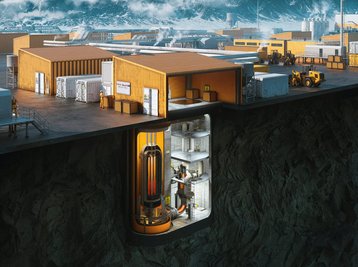Microsoft has appointed Archie Manoharan as director of nuclear technologies.
Manoharan previously worked at Ultra Safe Nuclear (USNC), a startup developing micro modular reactors. She will work alongside Erin Henderson, who joined Microsoft to head nuclear development acceleration in December.
At USNC, Manoharan was director of nuclear strategy and programs. The company uses TRi-structural ISOtropic particle fuel (TRISO) for its systems. Each TRISO particle is made up of a uranium, carbon, and oxygen fuel kernel.
Prior to that role, Manoharan spent a year as a licensing manager at BWX Technologies, a company focused on the supply of nuclear fuel and fuel channel components and equipment.
She also worked at utility Tennessee Valley Authority for four years, a year and a half at small modular reactor company NuScale, and over seven years at energy services company DTE Energy. There, she worked at the Fermi 2 nuclear power plant.
"I am delighted to share that I have started a new role at Microsoft as the Director of Nuclear Technologies," Manoharan said. "Microsoft is proud to be part of the global effort to decarbonize the electricity sector and empower every person and every organization on the planet to achieve more. I am eager to contribute to this vision!"
Last September, DCD exclusively reported that the company was recruiting to "implement a global small modular reactor and microreactor" strategy to power data centers.
Microsoft has procured Clean Energy Credits (CECs) from Canadian energy firm Ontario Power Generation (OPG), and signed a 24/7 nuclear power deal with Constellation for its Boydton data center.
Late last year, it revealed that it was working with Terra Praxis to train a large language model to help with the small modular reactor regulatory process.
Nuclear power was a major part of last year's COP28, with nations pledging to triple power by 2050. But the SMR industry faced turmoil earlier in 2023 after market leader NuScale saw a major project canceled, and has faced criticism over the viability of a second development.



